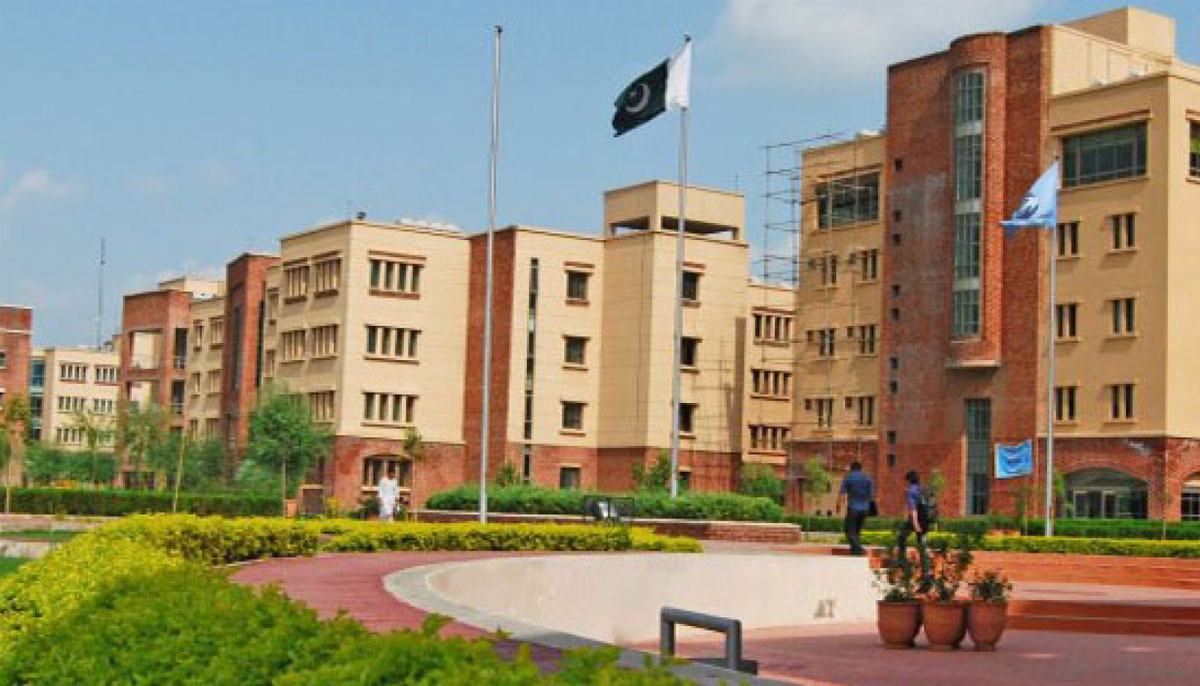Patent allowed on microfluidics to COMSATS varsity
Islamabad: The United States Patents and Trademark Office has allowed a patent on microfluidics to a team of researchers of COMSATS University, Islamabad.
The patent recognises a novel microfluidics device invented by a team of researchers to enable therapeutic drug monitoring for terminally-ill patients or those undergoing treatment from sensitive drugs which require real time monitoring to prevent over-dose.
The team comprising Dr Madeeha Chaudry, researcher at the COMSATS University Islamabad, Dr Malik Abdul Rehman, Prof Raheel Qamar, Rector COMSATS University Islamabad and Prof Arshad Saleem Bhatti, Dean of the Faculty of Sciences, COMSATS University, Islamabad, was allowed the US-patent on their invention.
This US-patent is an outcome of the PhD research of Dr. Madeeha Chaudry which has led to a novel device for real time drug monitoring of patients undergoing therapeutic interventions using very minute amount of blood serum samples on the principle of microchip assay.
The inter-disciplinary research was carried out jointly by the Department of Physics and the Department of Biosciences at COMSATS University Islamabad. The patent application incorporates data submitted as part of the Pakistani Patent Application No.339/2016 and will enable Pakistani researchers to commercialize their research in the United States.
The COMSATS University Islamabad is a leading public sector university of the Ministry of Science and Technology, which has developed a comprehensive patent profile of over 21 US patents and six Pakistani patents under various stages of commercialisation and submitted over 84 US-patent applications which are in various stages of evaluation and approval within a short span of time.
CUI Rector Prof Raheel Qamar congratulated researchers and said the permission of US patents on research work of his students was a global recognition of the potential of Pakistani research for innovation and commercialisation.
He said the woes of the government can only be resolved, with sustainable and incremental investments in the higher education of the country. Prof Raheel Qamar said the Prime Minister’s National Task Force under the leadership of Prof Attaur Rahman was trying to divert the much needed resources to the innovation landscape of Pakistan.
He said the task force was also making policy and infrastructural intervention for improving ease of doing business, as well as showcasing Pakistani research and development capacity to draw benefit to the immense technical and vibrant human resource available in the country.
-
 ChatGPT Caricature Prompts Are Going Viral. Here’s List You Must Try
ChatGPT Caricature Prompts Are Going Viral. Here’s List You Must Try -
 James Pearce Jr. Arrested In Florida After Alleged Domestic Dispute, Falcons Respond
James Pearce Jr. Arrested In Florida After Alleged Domestic Dispute, Falcons Respond -
 Cavaliers Vs Kings: James Harden Shines Late In Cleveland Debut Win
Cavaliers Vs Kings: James Harden Shines Late In Cleveland Debut Win -
 2026 Winter Olympics Snowboarding: Su Yiming Wins Bronze And Completes Medal Set
2026 Winter Olympics Snowboarding: Su Yiming Wins Bronze And Completes Medal Set -
 Trump Hosts Honduran President Nasry Asfura At Mar-a-Lago To Discuss Trade, Security
Trump Hosts Honduran President Nasry Asfura At Mar-a-Lago To Discuss Trade, Security -
 Cuba-Canada Travel Advisory Raises Concerns As Visitor Numbers Decline
Cuba-Canada Travel Advisory Raises Concerns As Visitor Numbers Decline -
 Anthropic Buys 'Super Bowl' Ads To Slam OpenAI’s ChatGPT Ad Strategy
Anthropic Buys 'Super Bowl' Ads To Slam OpenAI’s ChatGPT Ad Strategy -
 Prevent Cancer With These Simple Lifestyle Changes
Prevent Cancer With These Simple Lifestyle Changes -
 Air Canada Flight Diverted St John's With 368 Passengers After Onboard Incident
Air Canada Flight Diverted St John's With 368 Passengers After Onboard Incident -
 Experts Reveal Keto Diet As Key To Treating Depression
Experts Reveal Keto Diet As Key To Treating Depression -
 Inter Miami Vs Barcelona SC Recap As Messi Shines With Goal And Assist
Inter Miami Vs Barcelona SC Recap As Messi Shines With Goal And Assist -
 David Beckham Pays Tribute To Estranged Son Brooklyn Amid Ongoing Family Rift
David Beckham Pays Tribute To Estranged Son Brooklyn Amid Ongoing Family Rift -
 Jailton Almeida Speaks Out After UFC Controversy And Short Notice Fight Booking
Jailton Almeida Speaks Out After UFC Controversy And Short Notice Fight Booking -
 Extreme Cold Warning Issued As Blizzard Hits Southern Ontario Including Toronto
Extreme Cold Warning Issued As Blizzard Hits Southern Ontario Including Toronto -
 Lana Del Rey Announces New Single Co-written With Husband Jeremy Dufrene
Lana Del Rey Announces New Single Co-written With Husband Jeremy Dufrene -
 Ukraine-Russia Talks Heat Up As Zelenskyy Warns Of US Pressure Before Elections
Ukraine-Russia Talks Heat Up As Zelenskyy Warns Of US Pressure Before Elections




